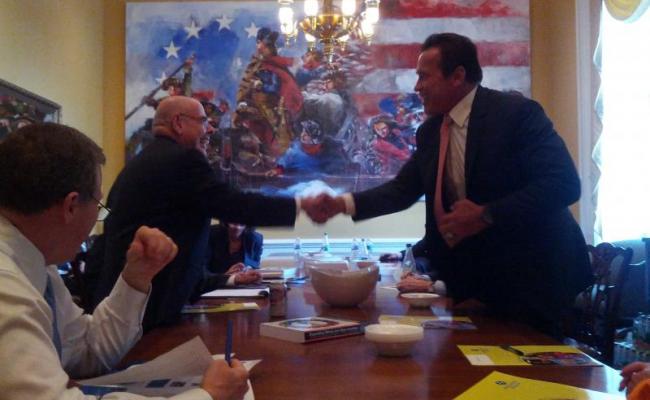By Nathaniel Haas
A lot can change in ten years. This time a decade ago, California had just emerged from a recall election less than a year into then-Governor Grey Davis’ second term. The budget process was mired in controversy, and the deficit was ballooning. Now, California has delivered on a slew of policy areas ranging from school financing to gun control
It’s a sharp contrast to today: as America emerges from a 16 day government shutdown and near default crisis, California stands as a diamond of productive politics in the rough of a nation mired by partisanship.
The Los Angeles Times and The New York Times, two of the most respected institutions of journalism on their respective coasts, reported over the weekend on California’s remarkable turnaround.
It started with removing partisanship from politics; a mission began by Arnold Schwarzenegger during his tenure as governor and proudly continued by the University of Southern California Schwarzenegger Institute.
For one, the newly seated legislature is the first to come from districts designed by a nonpartisan committee, instead of by the legislature. For two, due to the leadership of former Governor Schwarzenegger, elections to the State Assembly and Senate are now nonpartisan – the top two candidates, regardless of party affiliation, advance from a primary to a general election. Term limits were also lightened in a voter led initiative that now allows legislators in either the State Assembly or State Senate to serve for twelve years.
The shift to nonpartisan primary elections has placed a premium on candidates that communicate to the electorate as a whole. While some attribute California’s remarkable legislative productivity to control of the state government by Democrats, The New York Times argues that the reality of Democrat dominance is proof the reforms succeeded in improving democracy. J. Stephen Peace, a former Democratic legislator who is head of the Independent Voter Project, told NYT that the State legislature is more moderate than at any time in the past 30 years.
The USC Schwarzenegger Institute is proud to represent a model of political reform that is taking root with success, and firmly believes that removing partisanship from politics is the best way forward for our cities, our states, and our nation.

